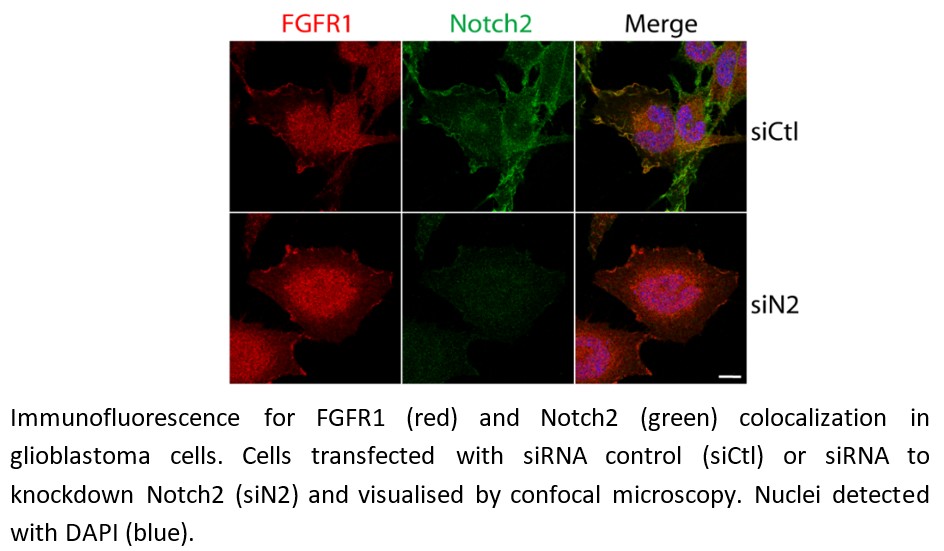Immunoresponse and signaling crosstalk in glioblastoma chemoresistance
Email: mercedes.tome@cabimer.es
ORCID ID: 0000-0001-8682-1800
Immunoresponse and signaling crosstalk in glioblastoma chemoresistance
Email: mercedes.tome@cabimer.es
ORCID ID: 0000-0001-8682-1800

My research interest is focused on understanding the molecular mechanisms driving neurological disorders. Since my doctoral studies I have developed research projects in the fields of neurodevelopment, brain pathology and neuroregeneration strategies, in national and European research institutions. These studies have contributed to the understanding of the onset of congenital hydrocephalus, have identified novel mesenchymal stem cells with transplantation potential for the regeneration of spinal cord injuries, and described the implication of Notch2 signaling pathway in the initiation of glioblastoma (GBM), the most aggressive type of brain cancer.
Since my return in 2018 through the Spanish National Research Council (CSIC), our goal is the identification of molecular mechanisms driving GBM progression and therapy resistance. Indeed, the standard therapy against GBM has a mostly palliative role, and does not prevent tumor recurrence in 95% of the cases. Therefore, it is essential to understand at the molecular level the mechanisms of adaptation of these cancer cells to identify vulnerabilities that could be translated into more efficient therapeutic targets. We are particularly focused on the crosstalk between growth regulatory signaling pathways such as Notch and FGF, and on their coordination with cellular processes (cell cycle, transcription, etc) and with the tumor microenvironment (astrocytes) to evade therapy-mediated cell death.
We have already shown the relevance of interfering with Notch receptor maturation to enhance tumor immunoresponse through a crosstalk mechanism with other signaling pathways including calcium/NFAT and NF-kB to block PD-1-mediated immunosuppression (Tomé et al., 2019 Cancer Res). We have also identified a molecular mechanism of crosstalk between Notch2 and FGFR1 signaling pathways promoting neural stem cell resistance to cytotoxic insults that could have implications in tumorigenesis (Tomé et al., 2019 Stem Cell Res). We are also characterising the communication between Notch2 and FGFR1 signaling pathways in GBM, and the molecular mechanisms by which they contribute to cellular homeostasis to evade therapy.

Previous positions:
Projects
Selected publications
A complete list of publications can be obtained at: https://orcid.org/0000-0001-8682-1800